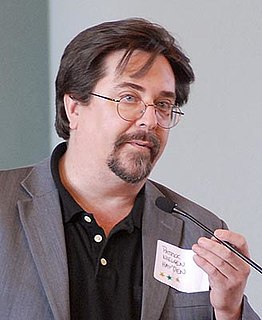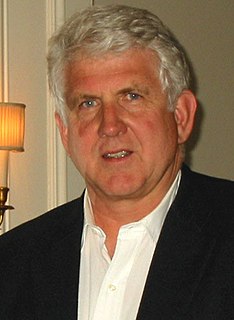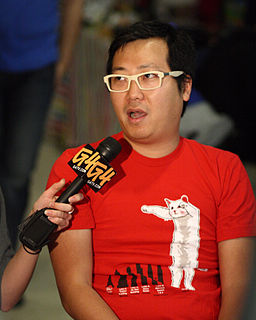A Quote by Michelle Dean
The 'World Wide Web', as people quaintly called the Internet in 1996, was more or less made up of text. There was no YouTube. There was no Facebook. There was, however, Usenet, a loose and difficult-to-navigate assortment of message boards.
Related Quotes
When I was 14, I spent a huge amount of time on the Internet, but not the Internet we know today. It was 1994, so while the World Wide Web existed, it wasn't generally accessible. Prodigy and CompuServe were popular, and AOL was on the rise, but I didn't have access to the web, and no one I knew had access to the web.
What I saw quite clearly in the '80s, before the internet, was that the whole world was shifting toward digital formats, and that didn't matter whether it's movies or writing or whatever. It was something that was coming. And with the invention of the World Wide Web in the early '90s, when we were teaching our first courses, or the arrival of the internet by way of the browser, which opened up the internet to everybody - soon it was just revolutionary.
Using the HTTP protocol, computer scientists around the world began making the Internet easier to navigate by inventing point-and-click browsers. One browser in particular, called Mosaic, created in 1993 at the University of Illinois, would help popularize the Web, and therefore the Net, as no software tool had yet done.
Coffee has assumed a social meaning that goes far beyond the simple black brew in the cup. The worldwide coffee culture is more than a culture - it is a cult. There are usenet newsgroups on the subject, along with innumerable sites on the World Wide Web, and Starbucks outlets populate every street corner, vying for space with other coffeehouses and chains. And after all is said and done, it's just the pit of a berry from an Ethiopian shrub.
Nowadays I imagine people find freer and more accepting venues in blogs, on Tumblr and Instagram and Facebook, in the riot of shouting that trails in the wake of every news story. So there's always the pandemonium of the Internet, if you need to get your lunatic opinions out in public. I find most of that stuff a little insane-making and my preference is to encounter personal essays in the relatively sedate and stable universe of print, in literary quarterlies, magazines and books. But I'm sure you can find plenty of good stuff in lonely outposts all across the World Wide Web.
Video is growing very quickly on Facebook. A lot of people compare that to YouTube. I think that kind of makes sense. YouTube isn't the only video service, but I think it's the biggest, and it probably makes more sense to compare Facebook video to YouTube rather than Netflix because that's a completely different kind of content.
































